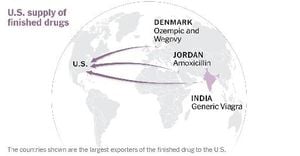In a world increasingly shaped by technology, the field of engineering is undergoing a significant transformation driven by artificial intelligence (AI). This was the central theme at the recent engineering congress held at the Instituto Tecnológico Superior de Uruapan (ITSU) from April 2 to April 4, 2025. The event, focusing on "Trends and Innovation of AI," brought together students, professionals, and experts to discuss the latest advancements and their implications for the future of engineering.
Patricia Uceda, director of Technology at the Universidad Privada del Norte (UPN), emphasized that engineering is at a pivotal moment as innovations challenge traditional models and promote more efficient and sustainable development. "Technology is not the future; it is the present. Its rapid evolution demands engineers with advanced skills and critical thinking," Uceda stated.
The congress featured a diverse program, including conferences such as "The Video Game Industry and the Power of Communities" by L.D.G. Diana Nayeli Rodríguez Aparicio and "AI in Programming" by Ing. Eric Uriel Ávila Barrios. These sessions aimed to provide insights into the current state of the industry and the skills needed to thrive in it.
One of the key trends highlighted at the congress was Generative AI. This technology is revolutionizing decision-making in engineering, enhancing precision and efficiency across various sectors. However, Uceda warned of the challenges that come with it, including data privacy, algorithm transparency, and its potential impact on employment.
Another major topic was the Internet of Things (IoT), which encompasses interconnected physical devices that gather and share data in real time. The advent of 5G technology is expected to maximize the potential of IoT, enabling faster and more stable connectivity. This advancement is set to drive automation in industries such as manufacturing and healthcare, while also enhancing security in critical environments.
Extended Reality (XR), which combines virtual and augmented reality, is also making waves in the engineering field. It is transforming technical training and simulation, reducing costs and risks associated with field tests. This innovative approach allows for interactive learning environments, making it easier for students to grasp complex concepts.
Sustainable technology is emerging as a fundamental pillar of modern engineering. The integration of automation and data intelligence is optimizing resource usage, reducing environmental impact, and improving energy efficiency. Uceda noted that the demand for professionals skilled in programming, data analysis, and cybersecurity is on the rise, as these competencies are crucial for leading digital transformation.
During the congress, students participated in practical workshops covering a range of topics, including information processing and analysis, ethical hacking, natural language processing, DevOps, fiber optics, and sales strategies. These hands-on sessions were designed to enrich the students' learning experience and equip them with essential skills for the job market.
Moreover, the event celebrated the achievements of four distinguished alumni from ITSU's engineering in computational systems program. Ing. Francisco Javier Jacobo Meza, a senior consultant, has worked on key projects for major companies like Cinépolis and Dynamics 365. M.A. José Edén Hernández Garibay, an expert in cybersecurity, leads critical projects related to technological infrastructure at a prominent regional company. Ing. Víctor Hugo Pérez Arteaga, known for his contributions to the video game industry, has made significant strides as a game developer and educator. Lastly, Ing. Jesús Ikikuri Jímenez Jímenez, an infrastructure specialist at Santander Global Tech, coordinates critical infrastructure projects across the Americas.
In addition to academic activities, the congress featured video game tournaments for titles like Mortal Kombat I, Mortal Kombat II, and Super Smash Bros. These competitions provided students with a platform to develop cognitive, social, and technical skills, fostering critical and strategic thinking.
To promote soft skills such as leadership, teamwork, assertive communication, and resilience, the event also included sports tournaments in soccer, basketball, and volleyball, with mixed teams to encourage inclusion and gender equality.
As the engineering field continues to evolve, the importance of ethical and conscious management cannot be overstated. Uceda pointed out that addressing challenges like data protection, AI transparency, the impact of automation on employment, and reducing the digital divide requires a responsible approach. "For innovation to have a positive impact, its development must be based on principles of equity and sustainability. Regulation will be key to creating a safe digital environment," she concluded.
The congress at ITSU not only highlighted the current trends in engineering but also served as a reminder of the critical role that education and continuous learning play in preparing future engineers for the challenges ahead. With technology advancing at a breakneck pace, the next generation of engineers must be equipped with the right tools, knowledge, and ethical framework to navigate this new landscape.





